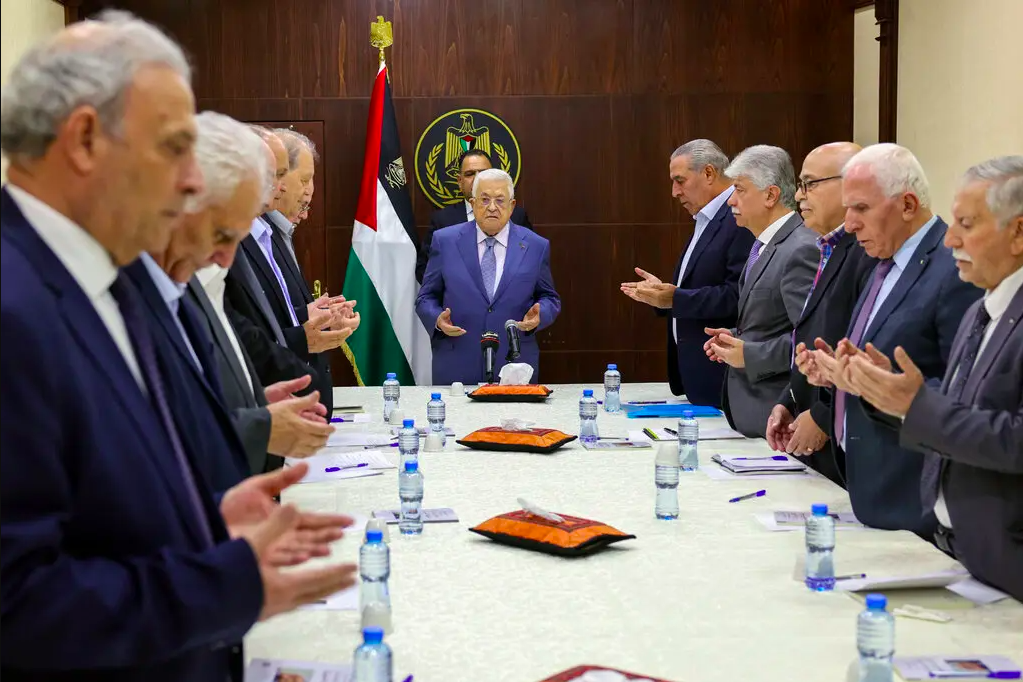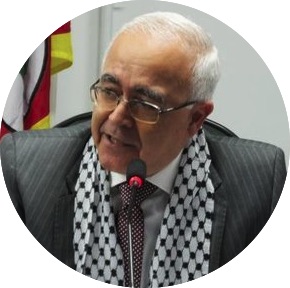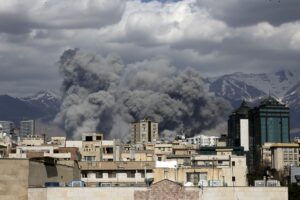
Published 12/07/2024 17:50 | Edited 13/07/2024 00:22
Amid ceasefire negotiations in the Gaza Strip, the Palestinian resistance group Hamas has put forward a proposal that suggests the creation of an independent Palestinian government to administer the occupied territories after the conflict ends. Hossam Badran, a member of Hamas’ political bureau, said the proposal includes the formation of a non-partisan government with national powers to administer both Gaza and the West Bank.
“We have put forward a proposal that a non-partisan government with national powers administer Gaza and the West Bank after the war,” Badran said in a statement. The talks are being mediated by Qatar, Egypt and the United States.
Badran avoided going into details about what Gaza would be like to be administered after the war, stressing that this is an internal Palestinian issue that should not be subject to external interference. “We are not going to talk about Gaza [após a guerra] with any foreign party,” he stressed. However, an anonymous Hamas source told AFP that the proposal also includes the exclusion of general elections in the Palestinian territories.
While Hamas has expressed a willingness to form an independent government, questions have been raised about whether Hamas and Fatah, the main political faction in the West Bank, will cooperate effectively. Palestinian analysts point out that Palestinian Authority President Mahmoud Abbas has blocked the idea of an independent government in Gaza.
The partisan issue

This proposal, however, generated diverse reactions and opened space for discussions about the feasibility and challenges of its implementation. Emir Mourad, Secretary General of the Latin American and Caribbean Palestinian Confederation (COPLAC) and member of the Palestinian National Council, shared with Red Portal your thoughts on the initiative.
Emir Mourad expressed a cautious and realistic view of Hamas’ proposal. “In theory, it is a proposal that has an acceptable political sense, but who appoints the independents? They have to have some kind of appointment body. That is why I think that non-partisan would not be an appropriate word. Because, you see, those who lead the resistance, the governments, are parties. Independents have seats too, they can be part of a ministry, of a government, I see no problem with that,” commented Mourad.
Mourad emphasized the need for an agreement on the proposal for a ceasefire, prisoner exchange, full withdrawal of Israeli occupation forces from the Gaza Strip and a plan for the reconstruction of Gaza. “From there we will have the issue of the composition of a Palestinian government to lead this new stage of the Palestinian struggle in Gaza, the West Bank and East Jerusalem,” he concluded.
International reaction and progress in negotiations
Hamas’ statement comes at a crucial moment in negotiations between Israel and the group, shortly after U.S. President Joe Biden announced that a ceasefire draft drafted by Washington had been accepted by both sides. Biden expressed optimism that the talks were progressing, although there were still gaps to be filled.
“These are difficult and complex issues. There are still gaps to be filled, but we are making progress. The trend is positive. I am determined to get this deal done and end this war, which must end now,” Biden said at a news conference.
The president also said Israel should not occupy Palestinian territory after the fighting ends, a sore point for Tel Aviv. The dissolution of the Israeli war cabinet, which included opposition members, was a consequence of the lack of a clear post-war plan for Gaza and the West Bank.
Biden’s three-phase plan
In May, Biden outlined a three-phase plan to achieve a ceasefire that includes the release of hostages in Gaza and Palestinian prisoners in Israel, the withdrawal of Israeli troops and the reconstruction of Palestinian territory. Hamas recently accepted a key part of that plan, dropping its demand that Israel first commit to a permanent ceasefire before signing the deal.
However, for Israel, any role for Hamas in the post-war Gaza crisis, even an indirect one, is likely unacceptable. Israeli Prime Minister Benjamin Netanyahu has repeatedly pledged to dismantle Hamas’s military and governmental capabilities, referring to the post-war period in Gaza as the “day after Hamas.”
Roles of international mediators
CIA Director Bill Burns and U.S. Middle East envoy Brett McGurk were in the region this week to discuss the deal. In a statement, Badran said Hamas was willing to give up civilian control over Gaza but would maintain its military wing, the Izz ad-Din al-Qassam Brigades.
The proposal for an independent government is seen as an important step toward rebuilding Gaza, which the United Nations estimates will require tens of billions of dollars. Many international donors, who consider Hamas a terrorist organization, are reluctant to directly support institutions linked to the group.
Challenges and possibilities
Despite the difficulties, the proposal for an independent government supported by several Palestinian factions could pave the way for broader international cooperation in the reconstruction of Gaza. However, the conflictual relationship between Hamas and Fatah, the main political faction in the West Bank, could complicate the formation of a united government.
The success of the ceasefire negotiations and the reconstruction of Gaza depend on an agreement that is acceptable to all parties involved. In the meantime, the international community continues to closely monitor developments and the possibility of a more stable and peaceful future for the region.
Source: vermelho.org.br

